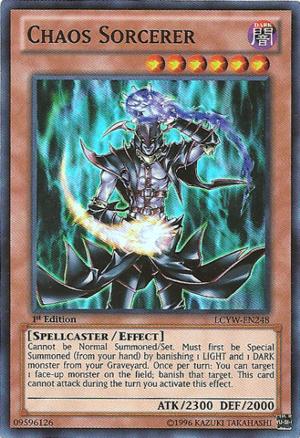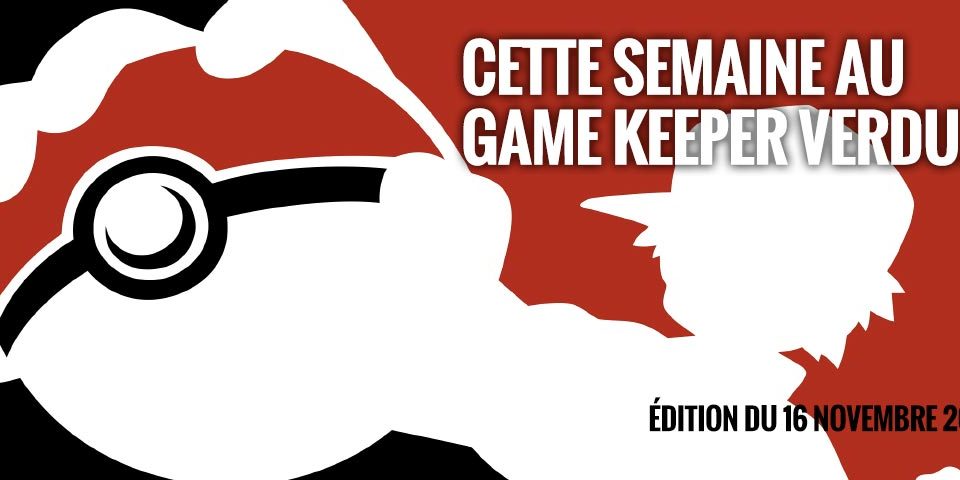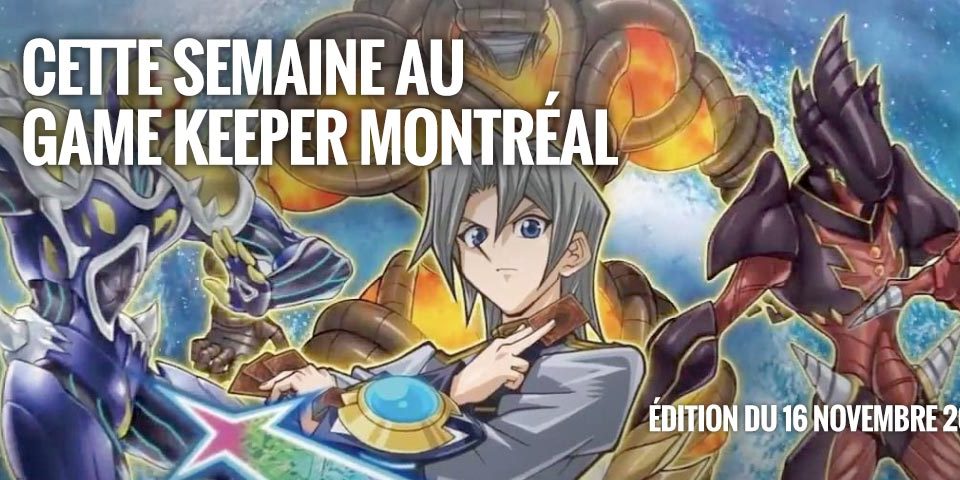Selesnya Extra Large
2013/05/10World Magic Cup Qualifier
2013/05/17Hello all fellow Yu-Gi-Oh! TCG players! My name is Jordan, and I am a 5 year veteran of the game. I’ve had the privilege of playing alongside some of the best players in the game, having played at premier events (YCS, North American World Championship Qualifier), and having judged Regional Tournaments as well. For my first ever article for gamekeeper.ca, I will discuss something which I believe is as pertinent as ever in this ever-evolving game of Yu-Gi-Oh!
With the release of Abyss Rising, there is an important game mechanic which needs to be reviewed. This article should serve useful to both experienced and newer players alike. The game mechanic that I am referring to is special summoning. Now, it would seem that special summoning a card is one of the simplest mechanics in the game; it simply involves you summoning a monster that does not take up your single normal summon for the turn. However, special summoning is far more complex than it would seem. There are two ways which cards can be special summoned:
a) By an effect (special summons which start a chain)
b) By their own summoning condition (Inherent Special Summon) which do not start a chain
So, why is this article relevant to the current game state? Well, simply put, cards such as Thunder King Rai-Oh, Solemn Warning, and Solemn Judgment still see plenty of play. The most common judge calls I receive are “can I negate this special summon with Thunder King Rai-Oh”, or, “Why can’t I activate Solemn Judgment in response to the special summon of Gorz the Emissary of Darkness”. In essence, which cards can Solemn Judgment, or Thunder King Rai-Oh negate? Before tackling that question, allow me to further elaborate on the subject of special summoning.
Cards which are special summoned by a card effect mean that they are not summoned by meeting a condition(s). Cards such as Gorz, Tragoedia, Mermail Abyssmegalo (hence the earlier reference to the new set, Abyss Rising) are special summoned via an effect. Consider the following card text from Mermail Abyssmegalo:
“You can discard 2 other WATER monsters to the Graveyard; Special Summon this card from your hand. When you do: You can add 1 “Abyss-” Spell/Trap Card from your Deck to your hand. You can Tribute1 other face-up Attack Position WATER monster; this card can make a second attack during each Battle Phase this turn.”
How do we know that this is an effect and not a summoning condition? If we focus on the first line, we notice three important things. First, we notice a semicolon “;”. Second, to the left of the semicolon, is the cost. To the right is the effect which special summons the card. Thanks to the new Problem Solving Card Text, we can now easily identify an effect and differentiate it from an inherent summon. If there is a cost, then it must be an effect. Remember, you don’t pay a cost to meet a summoning condition, you pay a cost for an effect!
Other cards which special summon by effect: Rekindling, Monster Reborn, Tour Guide from the Underworld, Rescue Rabbit, Tragoedia, Gorz the Emissary of Darkness, Debris Dragon, etc.
Now, how can we tell exactly what an inherent summon is? Again, consider the following card text for Chaos Sorcerer: 
“Cannot be Normal Summoned or Set. Must first be Special Summoned (from your hand) by banishing 1 LIGHT and 1 DARK monster from your Graveyard. Once per turn: You can target 1 face-up monster on the field: banish that target. This card cannot attack during the turn you activate this effect.”
Once again, notice the first two sentences of the Chaos Sorcerer text. We do not see any semicolon; therefore there is no cost or corresponding effect. This is the first hint that the special summon of a card such as Chaos Sorcerer is an inherent summon. Second, the text which states “Must first be special summoned (from your hand) by…” indicates that this is definitely an inherent summon (special summon which does not start a chain).
Other cards which special summon with a summoning condition: Chaos Sorcerer, Black Luster Soldier – Envoy of the Beginning, Judgment Dragon, Dark Armed Dragon, etc.
This small digression was crucial in understanding what cards like Thunder King-Rai-Oh, Evolzar Dolkka, Evolzar Laggia, Solemn Warning, and Solemn Judgment can and can’t negate. (Note: there are other cards which can negate special summons, however, I noted the most common examples. All other cards will be ruled similarly to the above mentioned cards).
Consider the following card texts:
Thunder King Rai-Oh
“Neither player can add cards from their Deck to their hand except by drawing them. During either player’s turn, when your opponent would Special Summon a monster: You can send this face-up card to the Graveyard; negate the Special Summon, and if you do, destroy it.”
Evolzar Laggia
“During either player’s turn, when a monster(s) would be Normal or Special Summoned, OR a Spell/Trap Card is activated: You can detach 2 Xyz Materials from this card; negate the Summon or activation, and if you do, destroy that card.”
Evolzar Dolkka
“During either player’s turn, when a monster effect activates: You can detach 1 Xyz Material from this card; negate the activation, and if you do, destroy that monster.”
Solemn Warning
“When a monster would be Summoned, OR when a Spell Card, Trap Card, or monster effect is activated that includes an effect that Special Summons a monster(s): Pay 2000 Life Points; negate the Summon or activation, and if you do, destroy that card.”
Solemn Judgment
“When a monster would be Summoned OR a Spell/Trap Card is activated: Pay half your Life Points; negate the Summon or activation, and if you do, destroy that card.”
Let us begin with Thunder King Rai-Oh. What can he negate? Observe the card text: “During either player’s turn, when your opponent would Special Summon a monster”. This refers directly to inherent special summons. When a card summons itself by meeting a condition, then Thunder King can negate it. Why, however, can’t it negate cards that are special summoned by effects? The answer is rather simple, but perhaps more difficult for a newer player to grasp. Thunder King is a card which uses an effect to negate a summon. Cards like “Monster Reborn” begin a chain, however the card which it selects to special summon is only special summoned at resolution. Thunder King Rai-Oh, cannot chain its effect to Monster Reborn because the effect to special summon has not yet resolved, meaning, the monster has yet to be special summoned. Thunder King Rai-Oh cannot negate something which has yet to be summoned! Moreover, once Monster Reborn resolves, the game state is now closed, and Thunder King Rai-Oh can no longer use his effect to negate the special summon of the monster.
On to Evolzar Laggia, a card which is nearly identical in concept to Thunder King Rai-Oh. It can negate an inherent special summon, however, it cannot negate a monster special summoned by an effect for the same reason that Thunder King Rai-Oh can’t.
Evolzar Dolkka, however, can negate effects that special summon, however it can’t negate inherent summons. The effect of “Dolkka” does not allow it to negate summons anyway. Its effect, however, allows it to negate monsters card effects, including monster effects which special summon, such as Mermail Abyssmegalo. “Dolkka” can also negate the effects of cards which activate in the damage step, such as Gorz the Emissary of Darkness, Tragoedia, and Battle Fader. Why? Because there are only certain effects which work in the damage step: Quick Effects (Legendary Six Samurai – Shi En, Stardust Dragon, Evolzar Dolkka), Counter Traps (Solemn Warning), and Spell Speed 2 cards which change the ATK/DEF of a card (Forbidden Lance, Shrink).
Solemn Warning negates virtually every summon, be it in the damage step (Gorz), a normal summon, an effect that starts a chain (Monster Reborn, Lumina, Lightsworn Summoner), or a card which special summons itself without starting a chain/inherent special summon (Cyber Dragon) including Synchro and Xyz Summons.
Regarding Solemn Judgment, (although a Counter Trap card which, in theory, can be activated in the damage step) consider what I said about Thunder King Rai-Oh. Cards like “Gorz” begin a chain, however the card which it selects to special summon (itself) is only special summoned at resolution. Solemn Judgment cannot chain its effect to “Gorz” because the effect to special summon has not yet resolved, meaning, Gorz has yet to be special summoned. Solemn Judgment cannot negate something which has yet to be summoned. Moreover, once “Gorz” resolves, the game state is now closed, and Solemn Judgment can no longer use its effect to negate the special summon of the Gorz.
I hope that this article helps all its readers. Should anyone still need clarification, feel free to approach me at locals or regional events and I will gladly help. Thanks for taking the time to read the article, and I hope you enjoy my future articles as well. Feel free to visit the Team Gamekeeper online store (gamekeeperonline.com) and subscribe to our youtube page (youtube.com/teamumbra1).



